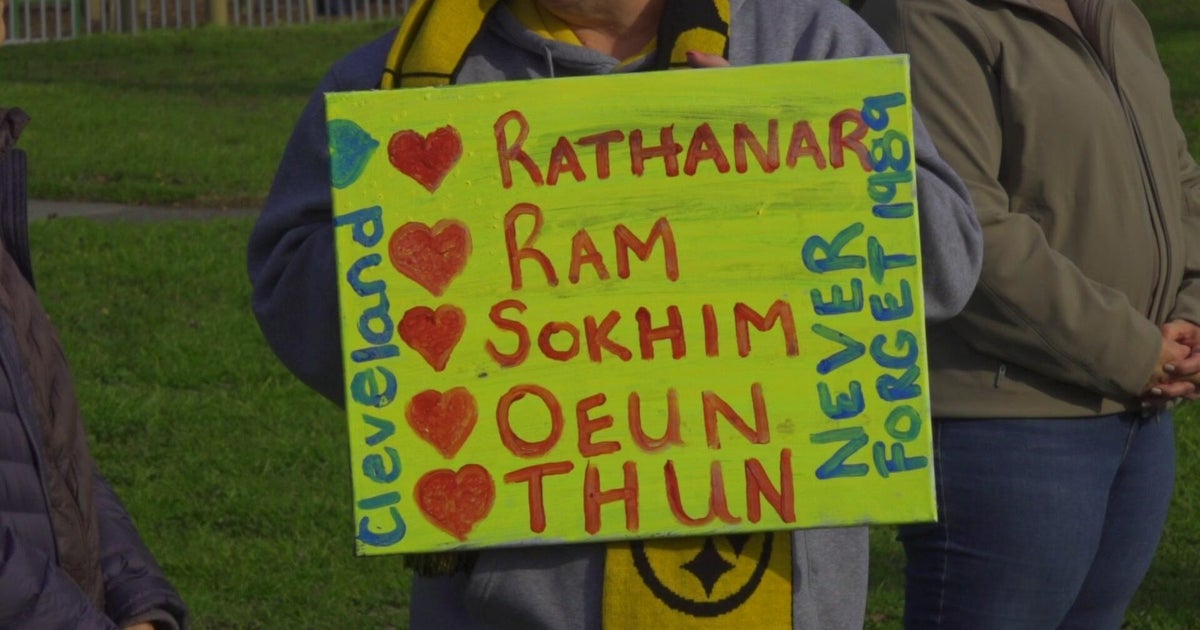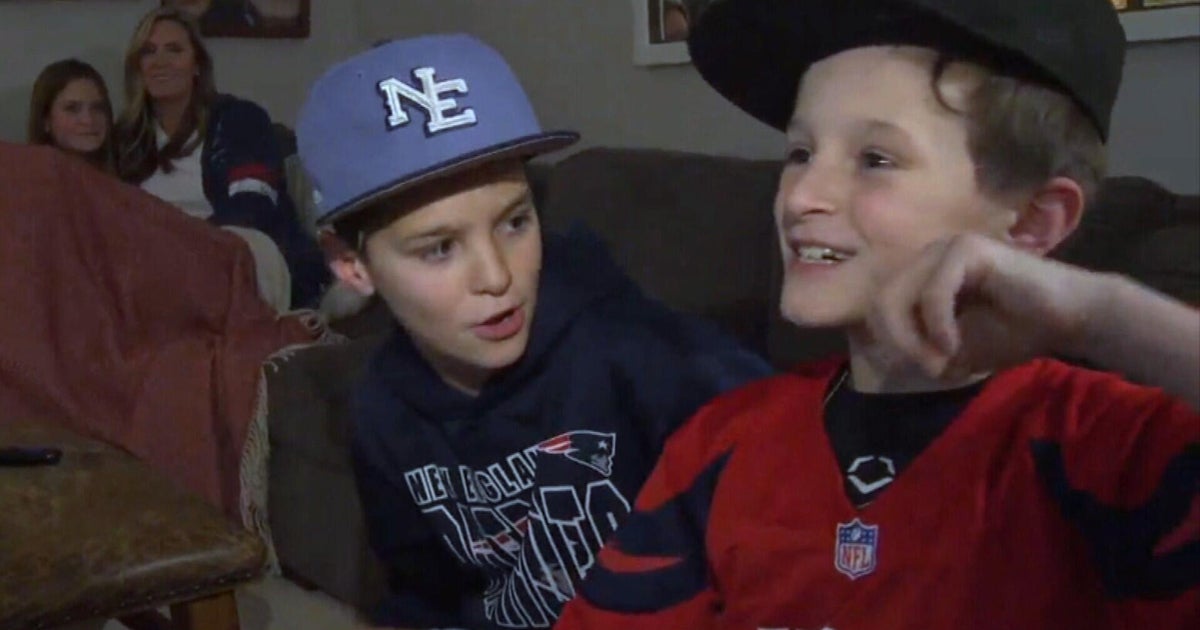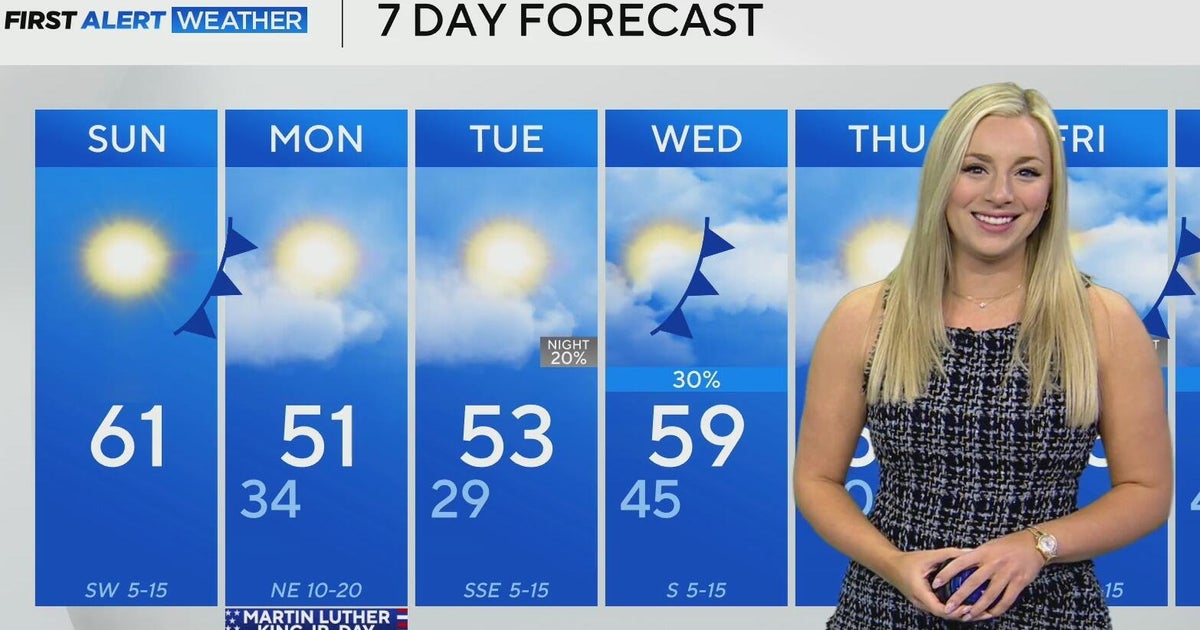As "Hoop Dreams" turns 30, its stars dedicate new community basketball court in Chicago
CHICAGO (CBS) -- Often listed amongst the best American documentaries, "Hoop Dreams" follows two Chicago high school basketball players in their pursuit of going pro.
Coming up on 30 years after the film's October 1994 release, a public basketball court unveiled in those two players' honor. The newly-refurbished basketball court in Garfield Park on the city's West Side is inspiring a new generation with hoop dreams of their own.
The court has a new net, a fresh coat of paint with the "Hoop Dreams" name prominently featured. Melvin Hines, 18, was on the court Saturday to show off some of the moves he has honed after years of practice.
"I grew up watching basketball. I grew up playing it," said Hines. "So whatever I can do to help leave an impact on the kids, or any upcoming basketball players, I'm willing to do that."
That was the same sentiment from "Hoop Dreams" subjects Arthur Agee and William Gates, now 51 and 52, respectively. Agee and Gates were both on hand to dedicate the Garfield Park court, which they said is long planned.
"It's been a dream of mine to have a 'Hoop Dreams' basketball court in the city of Chicago, just because I wanted to keep the legacy around for the movie," Agee said. "That's where they actually found me at, on the playground playing basketball, and I just wanted something real Cadillac-style, real fresh and clean, and really inviting."
Agee and Gates began their efforts to make the "Hoop Dreams" basketball court a reality in 2017—and are thrilled with the result. Gates and Agee were both themselves each discovered by street scouts while playing basketball on an outdoor court.
"It's hard to believe it, but that we are sitting here being relevant after 30 years—I mean, we got a little older, a little grayer—but this is the bright spot about the game of basketball," said Gates. "Agee was saying it—it's a culture. Faces change, but the game remains the same."
The court's renovation was a joint effort between multiple groups—coinciding with the nonprofit My Block, My Hood, My City's campaign to reopen closed courts, renovate the ones that are rundown, and make them usable again.
"We're calling it 'Save Street Ball,' but it's really saving lives in Chicago," said Jahmal Cole, founder of My Block, My Hood, My City. "We all realize that kids need something for a mental health. They need something to do to occupy their time."
One does not even have to be on the court to appreciate the investment. Some kids took notes from the sideline.
"It makes me feel really hopeful. We've seen North Lawndale, Garfield Park, and communities like that be disinvested in in the previous years in Chicago's history," said high school junior Damarion Spann. "But to see the Chicago Park District, and not-for-profits, like My Block, My Hood, My City, put effort in to also reinvest in those communities—it's key to building a better Chicago."
As Hines sank a ball into the new net Saturday, the high school senior hopes to play basketball in college next year.
"No doubt," Hines said.
For "Hoop Dreams," filmmakers Frederick Marx, Steve James, and Peter Gilbert tracked Agee and Gates for five years—from eighth grade through college.
As documented in the film Gates, who lived in the Cabrini-Green public housing development, and Agee, who lived in West Garfield Park, were recruited by a scout from St. Joseph High School in west suburban Westchester—the alma mater of Detroit Pistons legend Isiah Thomas. Agee later transferred to John Marshall Metropolitan High School.
The film documents the boys' struggles and triumphs at home with their families, in school, and on the basketball court.
The late CBS Chicago movie critic Gene Siskel was a huge fan of "Hoop Dreams." In a review that aired on the Channel 2 News at 10 p.m. on Oct. 21, 1994, Siskel said because viewers get to know Agee and Smith in a very personal way as they observe the high school basketball players on the screen, "we don't think about the score. We think about them scoring and what it means to them—not us—if they hit or miss."
Siskel and his syndicated movie review show partner, Roger Ebert, both took the Academy of Motion Picture Arts for failing to nominate "Hoop Dreams" for an Oscar.
While neither Agee nor Gates ended up playing in the NBA, "Hoop Dreams" remains a classic—and their impact remains profound even after 30 years.







